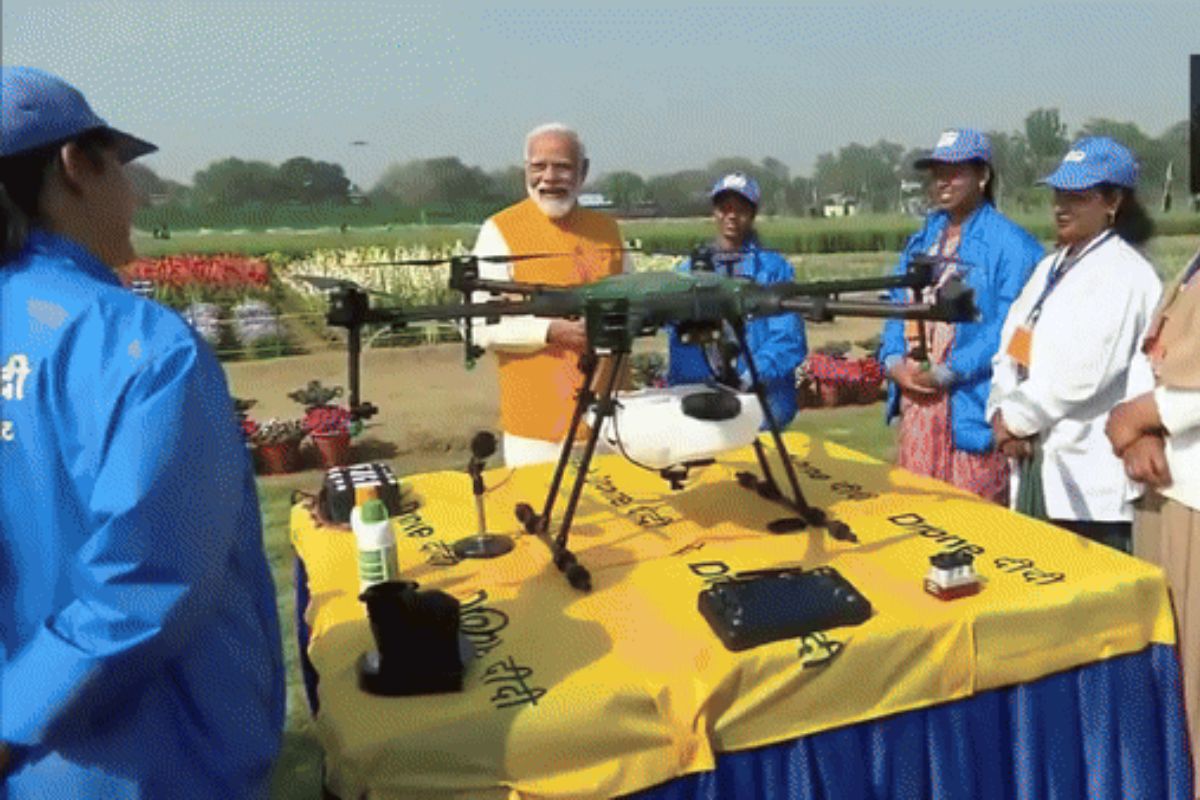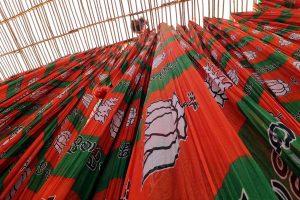The government has approved the Central Sector Scheme ‘Namo Drone Didi’ for providing drones to the Women Self Help Groups (SHGs) under DAY-NRLM, with an outlay of Rs 1261 Crore. The scheme aims to provide drones to 14,500 selected Women SHGs during the period from 2024-25 to 2025-2026 for providing rental services to farmers for agriculture purposes (application of liquid fertilizers and pesticides for the present).
The Department of Agriculture & Farmers’ Welfare has released the Operational Guidelines for this scheme and all the stakeholders have been requested to make meaningful use of these operational guidelines to ensure prompt roll out and implementation of the ‘Namo Drone Didi’ Scheme.
The operational guidelines have some major components. The Scheme will be governed at the Central level by the Empowered Committee of the Secretaries of Department of Agriculture & Farmers’ Welfare, Department of Rural Development, Department of Fertilizers, Ministry of Civil Aviation and Ministry of Women and Child Development.
The Implementation and Monitoring Committee headed by the Additional Secretary, Department of Rural Development and having representation from all other stakeholders, will be responsible for effective planning, implementation and monitoring of the scheme besides providing overall advice and guidance to all technical matters related to the implementation of the scheme.
Under the scheme, a Central Financial Assistance at the rate of 80 per cent of the cost of drone and accessories/ancillary charges up to a maximum of Rs 8.0 lakhs will be provided to the women SHGs for purchase of drones as a package while the Cluster Level Federations (CLFs) of SHGs/SHGs may raise the balance amount (total cost of procurement minus subsidy) as loan under National Agriculture Infra Financing Facility (AIF). Interest subvention at 3 per cent on the AIF loan will be provided to the CLFs/SHGs.
The CLFs/SHGs will also have the option to access loans from other sources/programmes/schemes of the Ministry of Rural Development while under the scheme, not only the drones but drones as a package will be supplied. The package consists of a basic drone with spray assembly for spraying liquid fertilizers and pesticides, drone carrying box, standard battery set, downward facing camera, dual-channel fast battery charger, battery charger hub, anemometer, pH meter and one year onsite warranty on all items.
The package also includes four spare battery sets, one spare propeller set (each set contains 6 propellers), nozzle set, dual channel fast battery charger, battery charger hub, 15 days training for drone pilot and drone assistant, one year comprehensive insurance, 2 years annual maintenance contract and applicable GST. The additional sets of batteries will ensure continuous drone flying which can easily cover 20 acres in a day. This apart, one of the members of the women SHGs will be selected for 15-day training comprising mandatory drone pilot training and additional training for agriculture purpose for nutrient and pesticide application.
The other member/ family member of the SHG with an inclination to take up repairs of electrical goods, fitting and mechanical works will be trained as drone assistant. The drone manufacturers shall provide these trainings as a package along with the supply of drones as per the training schedule indicated in the Operational Guidelines
Implementation of the scheme will hinge on rightful selection of the area/cluster and SHG group where there is demand for drones to provide agriculture services. As the introduction of drones in agriculture is at nascent stage, the states will closely monitor the interventions, provide handholding support to the women SHGs and help them in getting the business to cover an area of at least 2000 to 2500 acres in a year. The State Departments of Agriculture & State Mission Directors of DAY-NRLM will have a very strong convergence and they will take the ownership of the scheme for its successful implementation at the ground level with the help of the State Level Committee.
Initiatives under the scheme, it is envisaged, will provide sustainable business and livelihood support to SHGs and they would be able to earn additional income for them. It will help in infusing advanced technology in agriculture for improved efficiency, enhanced crop yield and reduced cost of operation for the benefit of farmers.












